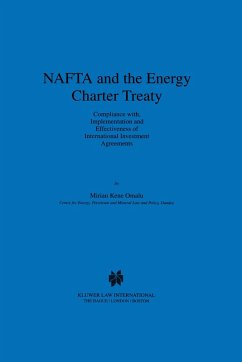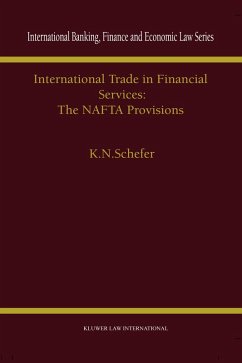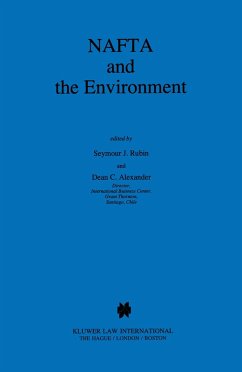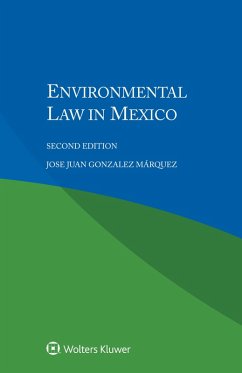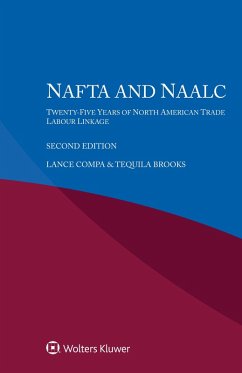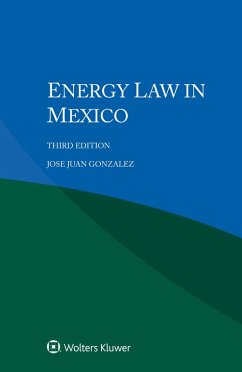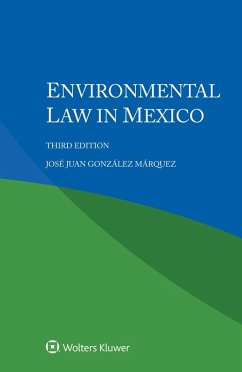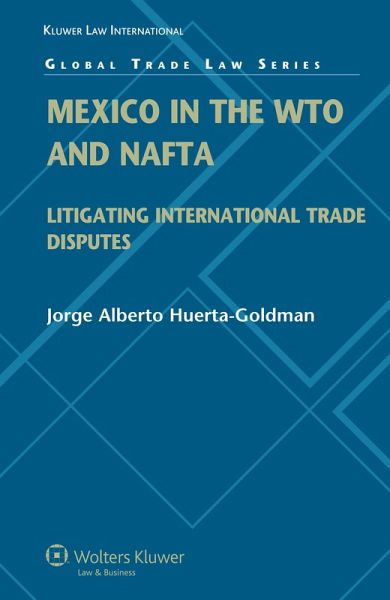
Mexico in the WTO and NAFTA (eBook, PDF)
Litigating International Trade Disputes

PAYBACK Punkte
74 °P sammeln!
This timely and thought-provoking work analyses Mexico''s conduct of its international trade dispute litigation from 1986 to 2007 in both multilateral and bilateral fora (i.e., GATT/WTO) as well as preferential trade agreements such as NAFTA. It exhaustively examines all cases and provides a well-reasoned explanation of Mexico's conduct, looking at factors such as bargaining power and political economy-type considerations. It also touches upon the strengths and weaknesses of the various dispute settlement systems that Mexico has used, analyzing their procedural aspects and their more important...
This timely and thought-provoking work analyses Mexico''s conduct of its international trade dispute litigation from 1986 to 2007 in both multilateral and bilateral fora (i.e., GATT/WTO) as well as preferential trade agreements such as NAFTA. It exhaustively examines all cases and provides a well-reasoned explanation of Mexico's conduct, looking at factors such as bargaining power and political economy-type considerations. It also touches upon the strengths and weaknesses of the various dispute settlement systems that Mexico has used, analyzing their procedural aspects and their more important substantive elements. In addition, It suggests a methodology for assessing the results of litigation, based on inputs and outputs. This methodology may be used for assessing the cases of other WTO Members. It compares the dispute settlement system of the WTO and NAFTA, including other preferential trade agreements. This is useful in the context of any WTO Member with ¿ potential or existing ¿ regional dispute settlement systems. Based on Mexico's data, it evidences the limitations of country v. country legal remedies by highlighting the issues left unresolved. It analyzes the conflicts of law between NAFTA and the WTO dispute settlement systems.
Dieser Download kann aus rechtlichen Gründen nur mit Rechnungsadresse in A, B, BG, CY, CZ, D, DK, EW, E, FIN, F, GR, HR, H, IRL, I, LT, L, LR, M, NL, PL, P, R, S, SLO, SK ausgeliefert werden.




